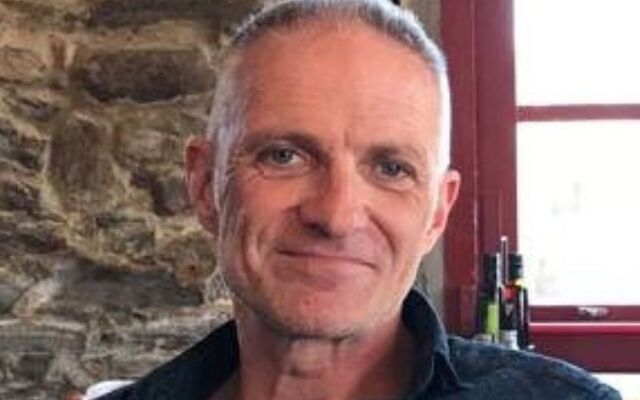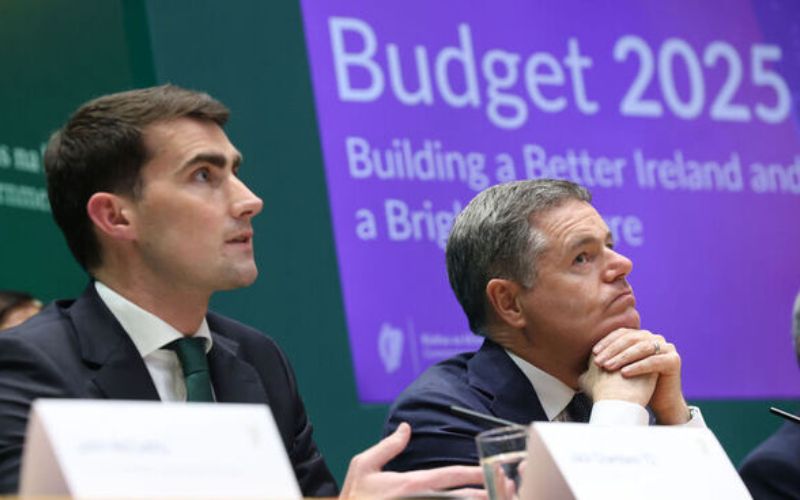Bernard Phelan, 65, was arrested and thrown into jail after being arrested on "anti-government propaganda" charges in 2022.
The tourism executive was locked up in the city of Masshad where he spent his days with prisoners on death row.
Mr. Phelan, a dual Irish-French national, spent 222 days in jail before being released on humanitarian grounds in May 2023.
Now he’s recounted his experiences in a new book, "You Will Die in Prison," which were the final words the judge uttered to him before he was locked up.
Originally sentenced to six-and-a-half years, Mr. Phelan revealed the horrifying conditions he endured from his first day in jail.
Mr. Phelan said he was brought blindfolded into an interrogation centre. His area was known as ‘Satan’s Block,’ where prisoners facing the death penalty would go before they were executed.
"I was brought into a first cell, [and] there was a young Iranian guy in the corner dressed in a white shirt," Bernard told Oliver Callan on RTÉ Radio 1 on Thursday.
"I started walking towards him when the cell door opened and I was brought to another cell where there were two Iranians, one of whom was a protestor who spoke English. And five minutes later, the guards came and took them away because I think they were speaking English.
"That night, lying on the floor with a blanket, I heard the door to the other cell opening and the next thing [there was] shouting and somebody hitting someone with a truncheon and the guy screaming. I knew then that I was in trouble."
Speaking on his imprisonment, Bernard knew that since he was a foreign national, he was "valuable merchandise." He said that the Iranian courts wanted to ensure that he was in good health - but knew that he was in prison on bogus charges, something that was confirmed when he met with Micheál Martin following his release.
"I discovered when I came back and I met [Tánaiste] Micheál Martin and the people in the Department [of Foreign Affairs], and was told quite clearly 'if you had your visa on your Irish passport you wouldn’t have been arrested,’ he explained.
"The Iranians basically have a shopping list; they wanted French hostages, Swedish hostages, a Belgian hostage — because there were Iranians in prison in Sweden, Belgium — that’s how it works. It’s a prison swap, essentially.
"Every time someone asked me where I was from I’d say Ireland [and there wouldn’t be a problem], but in the eyes of the law, the visa was on a French passport.
"It took quite a while before they mounted up the charges, [and] I was accused of sending information to an enemy state, and I said to the judge 'is France an enemy?' And he said to me 'not yet.'"
Speaking on the conditions of his cell, which housed exclusively "political prisoners" including foreign nationals and people involved in anti-government protests, Bernard said he feared for the teenage prisoners.
"They weren’t allowed leave their cells, they weren’t allowed go to the kitchen, weren’t allowed to phone, go into the courtyard — they were kept there all the time.
"And our block also had the two cells for executions. So any prisoner who was going to be executed the next morning after prayers would be brought to our block. And that was very difficult, because you heard the guys crying in their cells and the phones were cut, so you couldn’t phone to say 'your husband/brother/father is going to get executed tomorrow morning.'"
The conditions he endured in the jail were horrendous. He was also imprisoned during the coldest winter in Iran for a decade - with hot water bottles that were being sent to him from Ireland being confiscated on arrival.
"The Iranians had a technique with Coca-Cola bottles, and we’d fill the bottles with hot water and put that in the bed. We’d spend the day in bed dressed because of the cold, desperately trying to stay warm."
Despite Iranian law stating that foreign prisoners must be allowed to speak to their families, Bernard added that he only spoke to his father, husband, and sister a total of four times in seven months. He said that despite him being stuck in Iran, he "considered them hostages too."
He explained: "They had no updates on his condition, and didn’t even learn he was freed until he was on his way home.
"As Roland, my husband, said — I’m the hostage, but Roland’s the hostage, Caroline’s the hostage, my father’s the hostage. The first book I read when I got out of prison was about prison in England and Ireland because I was just curious; what’s prison like here? When you’re a prisoner in the west, you know when you’re going to get out. You have a date. We didn’t know when we were getting out [in Iran]."
Mr. Phelan was eventually released in May 2023.
Speaking on Morning Ireland in May 2023, his sister Caroline Phelan detailed how Tanáiste Micheál Martin had rang her to say that a release was on the cards, but to "remain calm."
"It was the greatest hope we had," she said. "We were informed by both French and Irish governments that there was a potential release coming up, but we have been through those stages before so we didn’t want to get our hopes up too much, because the negotiations were delicate.
"We didn’t know until he’d took off that he was on his way home. There were rumours, and tweets and press on Friday, and Thursday evening, but until he’d taken off, nobody could confirm that he was on his way."
Caroline noted that it was "touch and go" for a period of time, with uncertainties about her brother’s release, before he and French national Benhamin Briere were both released on humanitarian grounds.
*This article was originally published on Extra.ie.




Comments